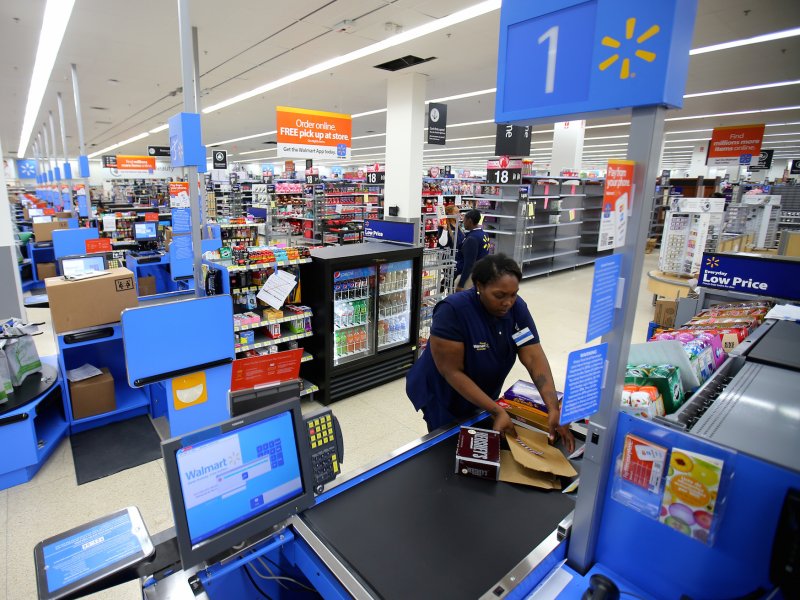Investing.com’s stocks of the week
- Shares of Walmart (NYSE:WMT) lost 10% Tuesday after posting disappointing online sales growth.
- E-commerce growth slowed to half what it had been the previous quarter.
- The results triggered a slew of downgrades from Wall Street analysts.
Walmart saw its worst day on Wall Street in more than 30 years Tuesday after reporting earnings that fell short of expectations and spooked investors.
Shares lost more than 10% in trading, resulting in a $31.6 billion decline in market cap, after e-commerce sales growth slowed to 23% — down from 50% in the previous quarter.
"The majority of this slowdown was expected as we fully lapped the Jet acquisition as well as creating a healthier long-term foundation for holiday,” CEO Doug McMillan said in a press release. "A smaller portion of the slowdown was unexpected, as we experienced some operational challenges that negatively impacted growth."
The results triggered a number of downgrades across Wall Street, as analysts grappled with the slowdown and lowered guidance for 2018.
"It is difficult to ignore the magnitude of the slowdown in e-commerce," RBC analyst Scot Ciccarelli said in a note. “Management expects the growth rate to ramp back up to the 40%+ range after 1Q, but we suspect this target will be met with more skepticism following 4Q17 results than when it was first laid out to investors several months ago.”
Walmart has been beefing up efforts to compete with Amazon (NASDAQ:AMZN) — which entered the grocery game with its $13.7 billion buyout of Whole Foods last year — through steep discounts on its Jet.com platform, curbside pickup, and a partnership with Google (NASDAQ:GOOGL) to compete with Amazon’s Alexa-powered devices.
Company executives downplayed the e-commerce slowdown, pointing instead to unplanned expenditures.
"During the quarter, we had additional EPS headwind related to some smaller unplanned items and expenses we incurred as we pulled forward initiatives in order to take advantage of a higher tax deduction," CFO Brett Biggs said through a spokesperson
Walmart still has some bulls on its side, though.
“There were some opportunities to better manage the business in Q4, but management is still making good long-term decisions about its asset base, capital allocation, price investment and building capabilities that allow it to offer more options to customers, reduce friction and build a bigger e-commerce business – this has not changed,” Jefferies analyst Daniel Binder said in a note to clients Tuesday.
"It sounds like this end of the investment cycle is more about maintaining momentum and advancing its lead rather than playing catch-up,"
Binder’s $119 price target is well above the Wall Street consensus of $106 for the stock — and 21% above the stock’s closing price Tuesday.
Shares of Walmart are up 33% in the past year.
